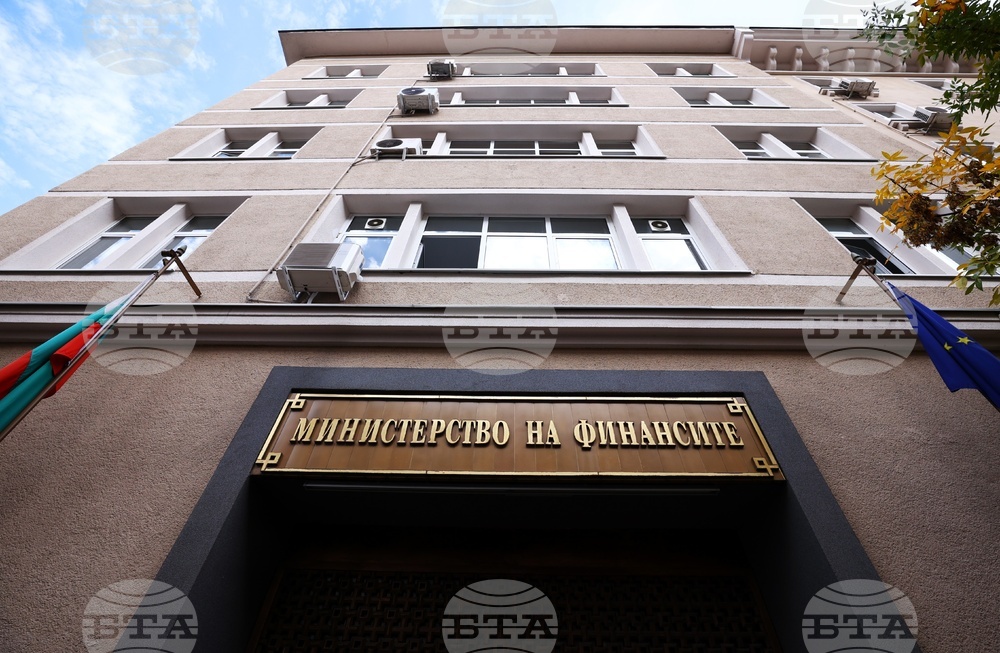site.btaUPDATED Finance Ministry Publishes 2025 State Budget Bill, Medium-Term Budget Forecast for 2025-2028 Period


The Finance Ministry published the 2025 State Budget Bill and the Medium-Term Budget Forecast for the 2025-2028 period, which serves as the explanatory memorandum to the bill.
In line with the adoption of the revised EU economic governance framework, which extends the time horizon and updates the rules and requirements for the quality of budgetary frameworks—including the obligation for EU member states to draft a national medium-term fiscal-structural plan for a minimum period of four years—the current forecast has been expanded to cover the 2025-2028 period. The fiscal policy objectives and budget parameters are aligned with the priority of maintaining fiscal sustainability over the medium term, the Finance Ministry’s press release said.
The budget deficit under the Consolidated Fiscal Programme (CFP) is projected to range between 2.2% and 3.0% of GDP annually throughout the 2025-2028 period, with a downward trend over time. This deficit reflects spending policies for 2025 and 2026, which are largely based on 2024 decisions and corresponding revenue measures. The deficit is expected to decrease to 2.7% of GDP in 2027 and further to 2.2% of GDP in 2028.
A sustainable nominal increase in revenue, including tax and social security contributions, is anticipated in the medium term. However, foreign aid will experience a temporary rise in 2025, followed by a slight decline in 2026 and a more significant decrease in 2027 and 2028. This reduction is attributed to the phased implementation of EU co-financed programmes, primarily under the Recovery and Resilience Plan.
Expenditures under the CFP will remain within the 40% rule stipulated by the Public Finance Act, excluding spending from EU funds and related national co-financing. Over the 2025-2028 period, public spending is forecasted to vary between 39.2% and 40.0% of GDP.
The government projects a steady increase in public debt due to new debt issuance over the forecast period. Public debt levels are expected to reach BGN 59.7 billion (27.7% of GDP) in 2025, BGN 70.5 billion (31.0% of GDP) in 2026, BGN 79.5 billion (33.5% of GDP) in 2027, and BGN 87.0 billion (35.2% of GDP) by 2028.
The minimum fiscal reserve as of December 31, 2025, is set to remain unchanged from the level specified in the 2024 State Budget Act, maintaining a balance of BGN 4.5 billion.
Throughout the 2025-2028 period, tax policy will focus on achieving macroeconomic and budgetary stability while ensuring the financial resources necessary to support government spending initiatives. Key policy objectives include sustaining economic growth, improving the business environment, combating tax fraud and evasion, and enhancing fiscal sustainability over the long term, the Finance Ministry further said.
The social security policy for the 2025-2028 period envisions maintaining the contribution rate for the Public Social Insurance’s (PSI) Pension Fund at its 2024 level for both 2025 and 2026. The contribution rates for other PSI funds, as well as the ratios between employers and insured individuals, will also remain unchanged.
The minimum social security income for self-employed individuals will increase to BGN 1,077 as of April 1, 2025, and will remain at this level throughout the forecast period. Similarly, the minimum social security income for farmers and tobacco producers will rise to BGN 1,077 from April 1, 2025, and will be maintained for the entire forecast period.
The maximum social security income for all insured individuals will increase progressively over the forecast period. It will rise to BGN 4,130 from April 1, 2025, followed by BGN 4,430 in 2026, BGN 4,730 in 2027, and BGN 5,030 in 2028.
The expenditure calculations under the 2025 State Budget Bill are based on the current legislation and take into account the effects of changes in regulatory acts coming into force on January 1, 2025.
The main expenditure policies leading to an increase in the budget's expenditure side for the 2025-2028 period are as follows:
- The calculations for the 2025-2028 period account for the increase in the minimum wage from BGN 933 to BGN 1,077 as of January 1, 2025, resulting in an expenditure increase of BGN 283.3 million.
- An increase in the maximum social security income is planned—from BGN 3,750 to BGN 4,130 as of April 1, 2025; to BGN 4,430 as of January 1, 2026; to BGN 4,730 as of January 1, 2027; and to BGN 5,030 as of January 1, 2028. This will result in an expenditure increase of BGN 33.2 million.
- The minimum social security income for self-employed individuals will be set at BGN 1,077 from April 1, 2025, and will remain unchanged throughout the forecast period.
- The child-rearing allowance for children up to the age of two will remain at BGN 780 for the entire period up to and including 2028.
- Additional funds amounting to BGN 617.6 million are allocated for pension indexation from July 1, 2025.
- The 2025 draft budget includes a 5% increase in personnel expenses for institutions where no other increases are planned under adopted regulatory acts and existing policies, including municipal administrations. This will result in an expenditure increase of BGN 283.7 million.
- The policy of increasing the salaries of teaching staff in secondary education will be maintained in 2025. Their salaries will be raised to 125% of the average gross monthly wage for 2024 (BGN 2,284), leading to an expenditure increase of BGN 499 million.
/KK/
news.modal.header
news.modal.text